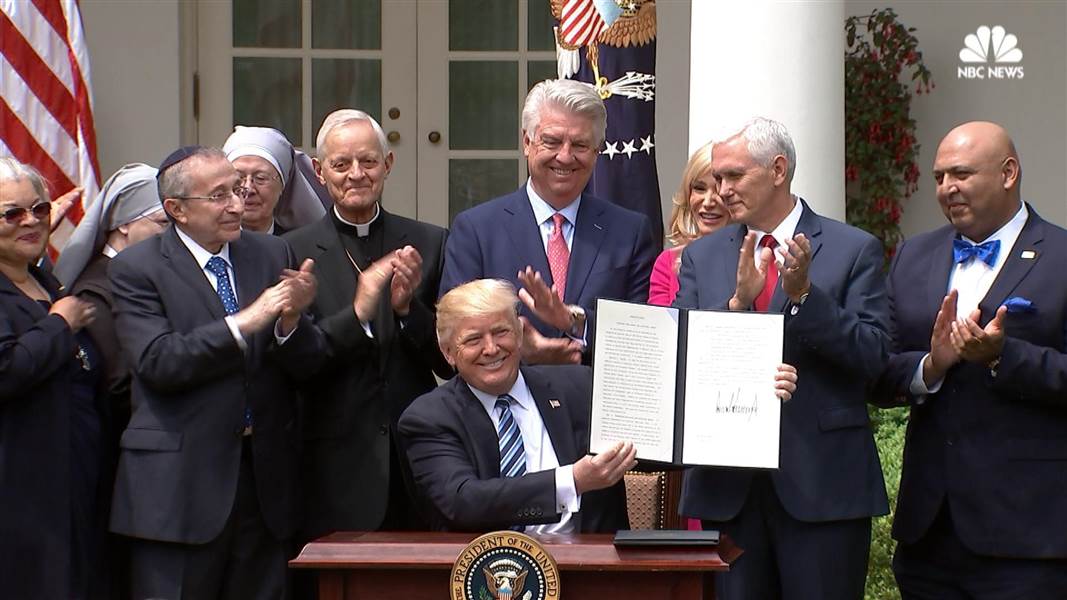
The Freedom From Religion Foundation has submitted testimony to Congress urging it to maintain a ban on church electioneering.
FFRF filed suit last week over President Trump’s executive order against enforcement of the Johnson Amendment, which prohibits tax-exempt nonprofits from engaging in campaigning. Trump’s directive lifts the proscription only as it pertains to churches. FFRF Staff Attorneys Andrew Seidel and Samuel Grover submitted their testimony to a House subcommittee, pointing out there is widespread misunderstandings about the politicking prohibition.
“The charge that churches are being persecuted and muzzled is without foundation, and most churches and the American public approve of the status quo,” the state/church watchdog notes. Pastors are not being jailed, churches are allowed to freely discuss topical issues and engage in some nonpartisan lobbying, and pastors in their personal capacity may endorse candidates.
Most Americans, including a majority of religious Americans, prefer that churches stay out of politics, FFRF testimony observes. It cites an evangelical polling group, Lifeway Research, which found nearly 80 percent of Americans say it’s inappropriate for pastors to endorse a candidate in church and 75 percent do not believe it is appropriate for churches to publicly endorse candidates.
“Tax exemption is a privilege, not a right,” FFRF points out. “The Johnson Amendment ensures equal footing on the political battlefield and also ensures that tax-deductible charitable donations, which are meant to serve the community, go to charitable works, not political campaigns.”
FFRF’s testimony calls attention to the fact that churches are uniquely exempted from filing tax returns with the Internal Revenue Service to prove their tax-exempt expenditures: “They are financial and informational black holes.” Overturning the Johnson Amendment could open the floodgates for dark money to be funneled to political campaigns through churches. The amendment is a wise and equitable rule that preserves the integrity of nonprofits and churches, and as such “must be protected and enforced,” FFRF concludes.
For the sake of our republic, members of Congress would do well to pay attention.

